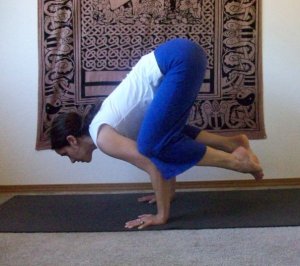A paragraph came without warning. I was reading Great House on the way to a wedding in Seattle. I didn’t even have a notebook to write it down, so I wrote in on the inside cover of my book. Hardback or not, I wasn’t going to lose that paragraph.
I’d been struggling to revive an old novel all summer. It was working about as well as it has for me in the past to revive old boyfriends. A couple of good dates while hope and nostalgia are still fresh, then boredom and reality sit in.
I wrote the first draft of that book in 2005.
I’ve always operated under the assumption that everything we ever write is worth returning to, that time and distance allow us to return with a fresh view.
Now I see that this is only true to a point.
What’s at the heart of a piece of writing comes from an urgent need to communicate an idea. Those urgencies change as we age and experience (resolving old questions, asking new ones).
That paragraph?
The beginning of the book I needed to be writing now.
The very next day I started in on it and as I mentioned last week my goal was 1000 words per day, every day. That was a week ago and my word count total is now 3515. As that number implies, I had successful days and not so successful days.
The first chapter came easily and the writing was pure bliss.
Day 1: 793 words
Day 2: 1813
Day 3: 2824
Day 4: 0
The second chapter was a slog. It had moments, but the narrative voice and immediacy of the action of chapter 1 were not there. I was telling too much. Too much backstory.
I started to question the project itself.
Day 5: 3629
Day 6: 3821
As if that weren’t bad enough, I started to question what the hell I was doing trying to write novels anyway.
Imagine me sprawled belly up on a bed in the middle of the afternoon, whining, “I just don’t know what I should work on or why the hell I’m even bothering. There are so many other things I could do with my time.”
That is exactly what happened.
At the time, my boyfriend was gracious. He complimented me, offered words of encouragement, and promptly grabbed his children and drove to the lake, leaving me to figure it out myself.
I cleaned the house.
Three hours later, forty minutes before our dinner guests arrived, I started to work on an opening for a different draft of a different story I am also working on. I wrote three possibilites. None of which I liked.
My feelings of failure as a writer were unresolved after our guests left, but I had better perspective. Our friend had asked me over dinner how my writing was going.
I surprised myself by the clarity of my answer. I told them about my day and was finally able to laugh at myself. It had been a bad day, I said, laughing.
I read the first chapter of the new story to my boyfriend after our guest left. He loved it! But I got stuck in chapter two, I explained. Send it to me, he said. “I’ll tell you where you went wrong.”
I sent it. We went upstairs to watch the next installment of Breaking Bad.
The next morning he did read both chapters and confirmed for me what I already knew and listened while I strategized. I would highlight everything I would cut later (the telling, the backstory), but not delete the words. Deleting wasn’t an option. Okay, he said. Highlight, then. I could start chapter two with this line, he said. Or this one, I replied.
Writing today went well. Very well.
If I had trusted my feelings yesterday, I would have deleted all the writing I’ve ever done.
Buy my books here.
Interested in hiring me as a coach to get you boosted with your writing goals?
Find free resources and information here.
Some past posts to keep you making time:
Adjust your pace accordingly.
It’s about the routine and how you shake up the routine
There are things you will have to give up
See it to achieve it
Washing the dishes
Write slowly
A celebration of the pause
Monday, a run through the driving rain
Zen accident
Get out of your comfort zone








